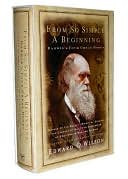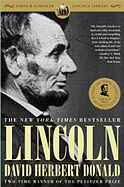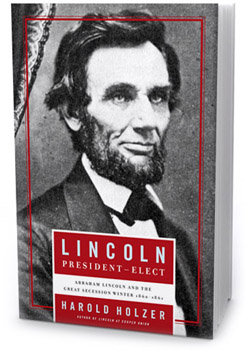 Eric Foner is exactly the kind of history professor from whom I wish I could take a class; erudite, serious and excited by his subject. Reading his books, particularly A Short History of Reconstruction and Forever Free: The Story of Emancipation and Reconstruction, I've become convinced that if there is anyone who can teach me what it meant to be alive in America then, and what the lives of Americans then might and ought to mean to us now, it is Eric Foner.
Eric Foner is exactly the kind of history professor from whom I wish I could take a class; erudite, serious and excited by his subject. Reading his books, particularly A Short History of Reconstruction and Forever Free: The Story of Emancipation and Reconstruction, I've become convinced that if there is anyone who can teach me what it meant to be alive in America then, and what the lives of Americans then might and ought to mean to us now, it is Eric Foner. 
His book The Story of American Freedom is one of those titles I have been pressing into the willing and reluctant hands of customers and coworkers since it's original publication. I know the title sounds like one of those well intentioned freshman Seminars, taught in an anonymous, drafty lecture hall by some dessicated old party with a slide projector, and actually conducted by weary TAs roaming the aisles with dusty pages of "supplemental readings," but you must trust me when I tell you, it is actually one of the most breathtakingly wide-ranging and scintillating acts of American intellectual history I've ever read. Reading Foner as he traces the progression of "freedom" and "liberty" through our history, is not unlike spending time, at least as I imagine it, in the personal library of a great bibliophile and conversationalist who darts from his chair every few minutes to produce the exact text he's been quoting from memory, just to show you yet another surprising instance of our mania for, and wildly contradictory usage of, the great watch-words and shibboleths of representative democracy. It is the author's enthusiasm, as well as his scholarship, that makes him such good company.

Now, for the Lincoln Bicentennial, Eric Foner has edited a new collection of popular essays from noted scholars -- no mean trick in my experience as a reader of history -- on subjects ranging from his own thoughtful consideration of the embarrassing topic of "Lincoln and Colonization," to James M. McPherson's brief summation of "A. Lincoln, Commander in Chief" (which I highly recommend if you don't intend to read McPherson's recent full-length treatment of the subject, reviewed in an earlier posting here.) Foner's new book is called Our Lincoln: New Perspectives on Lincoln and His World, from W. W. Norton. In addition to Harold Holzer on Lincoln and art, and Mark E. Neely, Jr. on Lincoln and the Constitution, there are names less familiar to me and essays I was surprised to find myself enjoying thoroughly. David W. Blight, for example, I did not know. The very title of his essay, "The Theft of Lincoln in Scholarship, Politics and Public Memory," made me jumpy. That word "theft" has the spin to it of literary-theory and "historiology" --id est gab about rather than history written. But it actually proved to be one of my favorites in the collection; taking on the Lincoln pietists, bully patriots, politicians and revisionists all at a go! Now I must find Blight's latest book, A Slave No More; Two Men Who Escaped to Freedom, Including Their Narratives of Emancipation, from 2007, and put my embarrassing suspicions to rest.
I would encourage anyone interested in contemporary Lincoln scholarship to seek out this new collection, without a worry that the common reader will find anything therein but consistently well written, thoughtful, and "theory"-free American history of the best kind. (Foucault, for example, is blessedly absent entirely from the index. Can I get an "Amen?")




















